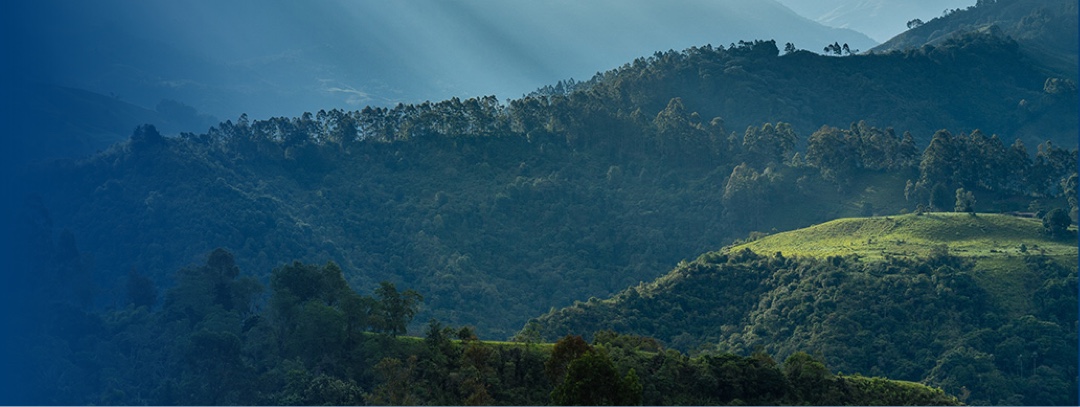Our management of natural capital is approached from our sustainable finance strategy, from which we develop financial services that consider the conditions of the environment and the impact of investment decisions, subscription and development of products and services.

Natural capital
Sustainable finance approaches
At Grupo SURA as an investment manager with a focus on financial services, and specifically, with strategic investments in insurance companies and asset management, we address sustainable finance through the following:
Sustainable Investment
At Grupo SURA we pay special attention to the risks and opportunities related to environmental, social and government (ESG) issues, associated with a wide range of industries, since the way we interact with all sectors through investments is key to our sustainability.
Likewise, we understand that, as investors and relevant actors in the business context, we have the ability to influence to strengthen business dynamics that respect the environment, with a long-term vision and that respond to the expectations of stakeholders. This implies developing our investment businesses within the framework of co-responsibility, starting from a deep understanding of the impact of our investment decisions on the aforementioned problems.
For this reason, we have a Responsible Investment Framework Policy that establishes general parameters that seek to promote approaches to the incorporation of environmental, social and governance issues in the investment processes of the subsidiaries. Based on these parameters, the subsidiaries have developed specific manuals and processes to comply with the Policy.
SURA Asset Management, in particular, is a signatory of the Principles of Responsible Investment, PRI.
Additionally, there is a Responsible Investment Table, in which members of Suramericana, SURA AM, and Grupo SURA participate, in order to monitor compliance with the Policy and share best practices among the companies. Grupo SURA maintains different channels of dialogue with subsidiaries for the exchange of knowledge, the development of skills and the promotion of sustainable investment management.
In addition, Grupo SURA has a manual for the analysis of M & A operations. See here
In addition to the incorporation of environmental, social and governance criteria in investment decisions through policies, manuals and processes, progress has also been made, from the third-party asset management segment, in the design of funds that incorporate elements of integration of these criteria. Protección SA, a subsidiary of SURA Asset Management in Colombia, transformed 4 of its investment funds (United States Stocks with coverage, US Stocks without coverage, International Stocks with coverage, International Stocks without coverage), applying ESG criteria, seeking to reduce their time, the carbon footprint of these portfolios. As of December 2023, the value of these funds totaled USD 124.29 million.
Learn more about our Sustainable Investment Policy
Sustainable insurance
From insurance management, taking into account the aforementioned criteria, our South American subsidiary is a signatory of the Sustainable Insurance Principles. Thus, our subsidiary has made progress in incorporating ESG criteria into subscription processes. The Company has underwriting guidelines that establish non-target or aggravated risk activities and has specific procedures for sensitive sectors. It also has a sectoral ESG risk matrix that is used to analyze the subscription processes regarding the material issues of each sector. The Company also has escalation conditions for those businesses that, due to their characteristics or amounts, require to be analyzed in greater detail by subscribers with greater experience.
In addition, the company engages with clients and insurance brokers regarding ESG risks through the Trend and Risk Management Model, which begins with a series of workshops in which the environment in which a company operates is analyzed. company and in relation to its strategic objectives, trends and risks are identified, of which their correlations are also evaluated.
With the information obtained, a matrix of trends and risks is built, a map that shows the degree of exposure and the best opportunities for organizations, so that they define better management strategies for them, either through transfer or other strategic options. . For further information please click here. Specifically, in 2021 activities were carried out with clients such as: workshops for the application of the GRI principles in the report, participation in events on climate finance, training on opportunities and risks in sustainable construction, among others. Some of these spaces and trainings are carried out with the brokers to delve into the trends of the construction sector.
On the other hand, incentives are offered for clients who better manage their impact, such as discounts on construction premiums for projects with sustainable construction certifications. It has also considered environmental and social criteria in the design of solutions, such as:
Energy efficiency: Bancóldex, in alliance with the Inter-American Development Bank, Icontec and Seguros SURA, currently supports companies interested in boosting their growth and improving their cost structure through energy efficiency projects. The purpose of these is the reconversion of some technologies to obtain energy savings, which translates into lower costs and higher productivity.
The companies that bet on the idea by hiring an energy services company for the execution of the project, not only receive financing with a low interest rate from Bancóldex, but also have Compliance Insurance of SURA Energy Efficiency to support your investment and the results you intend to achieve with it.
Solar energy: Solar or photovoltaic energy represents an important change for people or co-owners who make the decision to take advantage of it by installing a power generation system in their house, apartment or building. This insurance protects the investment from unforeseen risks that may arise during transport, assembly, installation and operation of the equipment.
Wind energy: Wind energy is a renewable source that uses the force of the wind to generate electricity through wind turbines. This type of energy has grown significantly and is expected to continue like this in the coming years, which implies the development of larger projects. With the Wind Energy Insurance, the investment is protected against the different damages that may occur during the transport, assembly, installation and operation of the equipment.
Agricultural insurance: This insurance covers production costs and the value of the harvest in case of loss due to natural events such as avalanche, landslide, excess rain, hail, fire, flood, drought, strong winds and volcanic eruption. Applies to corn, rice, cotton, sorghum, sugar cane and soybean crops.
Digital lease: This insurance is a digital alternative to traditional lease insurance. Covers the value of the lease in case of default, payment of administration fees and home services. This insurance does not require travel or paper to process, so it has associated social and environmental impacts.
Sustainable construction: We encourage the development of projects under the LEED, EDGE or CASA Colombia certifications, offering a 10% discount on the premiums of the SURA Construction and Compliance insurance policies, for projects that achieve these certifications. The incentive will be granted once the project obtains the certificate, and in the process, SURA advises the client through analysis of tax benefits and scope of the certification, and with training for the personnel involved.
Electric and hybrid vehicles: this policy covers events such as damage to third parties, partial and total loss of the vehicle, accidents to the driver, among others, and also covers damage to the domestic charger and has a complete technical assistance scheme. In addition, in an agreement with Celsia, SURA has two charging stations in Medellín and Cali.
Climate Change
At Grupo SURA we recognize the importance of incorporating climate change and its implications in strategic planning.
The way we interact with all sectors of the economy, through insurance, institutional investments and lending activity, exposes us to various impacts associated with different industries. And, at the same time, it confronts us with opportunities to generate value.
For this reason, our companies work on the integration of different actions for climate management, incorporating the recommendations of TCFD as follows:
Strategy
In Grupo SURA we have a strategic risk process that seeks to identify, characterize, evaluate, manage and monitor all those risks that, due to their nature and correlations in the portfolio, have the potential to significantly impact the company’s strategy. One of these risks identified is climate change. In this sense, the company has advanced in its characterization through the identification of risk scenarios associated with the impacts of climate change at an ecological level (see report). Currently, a project is being executed that seeks to prioritize the most representative climate risks for Grupo SURA and then analyze their financial impact through the use of different scenarios.
In turn, subsidiary companies continue to execute their climate risk management strategy in accordance with the specific conditions of their business. In Suramericana, this strategy is addressed through the areas of Trend and Risk Management and Geosciences. On the one hand, the Trend and Risk Management teams have observatories of Variability and Climate Change trends, which seekto collect information about the transition risks that may affect different sectors, in order to build reports that are shared with customers. On the other hand, Geosciences department develops periodic analyses of hydrometereological variables that seek to understand the exposure, of both clients and the company, to extreme weather events. These analyses allow the company to identify clusters of risk to implement prevention measures. In addition, it has a geographic information system, available to customers, through which different sources of risks, including climate risks, can be analyzed in a georeferenced manner.
Finally, Suramericana has product design teams that have incorporated climate variables for the development of solutions such as Agro Insurance, renewable energy insurance, energy efficiency insurance and sustainable construction insurance.
At SURA AM, the sustainable investment strategy has climate change as its strategic pillar. It has made progress in modifying investment funds that seek to reduce its carbon footprint and has investment analysis tools that involve climate variables. In addition, it is part of the Portfolio Decarbonization Coalition and is developing a work plan for measuring the portfolio’s carbon footprint, in order to build a baseline that serves as a reference for the establishment of reduction targets. (See Sustainable Investment section).
Risk management and scenarios
Grupo SURA includes climate change in its risk management process, identifying it as a strategic risk. In addition, it continues in the process of moving towards a more informed understanding of the financial impact of climate risks on its portfolio. For this, the company has designed a project in which it is intended to quantify and monetize, through the use of scenarios, these impacts.
For its part, Suramericana, through the Geosciences and Risk team, has carried out quantitative models of precipitation, temperature and winds using physical risk scenarios (RCP2.6, 4.5, 6.0, 8.5) to manage risks through geographical diversification, anticipated mitigation measures, portfolio change and new technologies. In addition, transition risk analyses are carried out through qualitative scenarios based on the signals identified by the Geosciences and GTR (Trends and Risks Management) teams in the trend observatories. This makes it possible to determine the threat level of extreme weather events associated with climate change such as: hurricanes, floods, droughts, fires and hailstorms. This assessment helps to control the accumulation of risk in those areas where a high level of threat is identified and to manage the risk of customers to contribute to the sustainability of the business.
In the case of SURA AM, climate risk management is carried out in the management of its portfolio through the sustainable investment strategy. In this way, SURA AM recognizes climate management as a pillar of this strategy. Likewise, in the next two years it expects to have a process for the analysis of financial impact scenarios. For now, when it comes to investment decisions in public markets (equity and corporate loans), ad hoc scenario analysis is included in sectors with high exposure to climate risks (energy, oil and gas and food and beverage industries) for which internal investigations based on the possible impact of energy policies or climate events are labeled through internal tools and public information from issuers.
Governance
At Grupo SURA, climate risk management is led by Corporate Risk and Corporate Citizenship departments. In turn, the Board of Directors, through the Risk and Sustainability Committees, supervise, recommend and provide feedback on the strategy related to climate risks.
In Suramericana the management of these risks is carried out from the Geosciences, Trend and Risk Management and risk departments. They report to the Board’s Sustainability Committee, which oversees the strategy and issues recommendations.
In SURA AM the Board of Directors supervises and recommends through the Sustainability Committee and the management is carried out from the Sustainability, Risk and the Investment Management departments. SURA IM on the other hand, has a specialized ESG team.
In addition, the three companies have instances of dialogue where good practices are shared, such as the Sustainability Technical Working Group and the Responsible Investment Working Group.
Metrics
The carbon footprint of the SURA Business Group’s companies (in tonnes of carbon dioxide equivalent: ton CO2e) is monitored to guide management towards reducing the intensity of the use of resources to carry out day-to-day operations.
Investor Kit Q424
Download our investor kit, a tool that will allow you to easily utilize the figures of our organization.
Download



